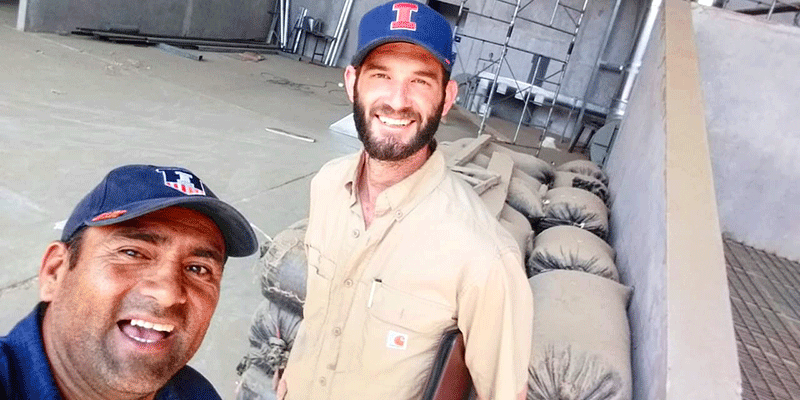Peru: An Unexpected Collaboration and Friendship

When I started graduate school, I knew I wanted to do research internationally. I’m particularly drawn to agriculture, because the intersection of food and culture is consequential to our human experience. Throughout history, agriculture has defined societies and it is immensely gratifying for me to witness the cultural traces of its impact in communities across the world. My story is a tribute to the challenging realities of cross-cultural research, but also to how international exposure is a place for growth and richness.
Before graduate school, I had the opportunity to work in international agriculture. This work has rarely been easy, but my experiences have been very fulfilling. During my project “Balancing Economic and Environmental Sustainability for Rice Farmers in Peru,” I have been challenged in numerous ways, but I have also been pleasantly surprised by an unexpected collaboration and friendship.
When I arrived in Latin America, I had very limited knowledge of the Spanish language and rice production. I am in Peru to learn both, and the process of learning has been a vulnerable space. At times, I have felt useless and clueless, which is difficult, when I often feel intelligent and capable in my home country or town.
My research involves surveying Peruvian farmers about production costs and the complexities of their management decisions. This task of enumeration takes friendliness, courage, patience, persistence, and a willingness to listen to others’ experiences. Due to my lack of Spanish, I needed someone with these qualities to help me carry out this work. Shortly after arriving in Peru, I found out that my translator would not be coming to help me. This was quite a blow as my research hinged on my need of a translator. I quickly felt overwhelmed, and I never imagined that I would find someone else who would be such a perfect fit for the job.
In my third week in Peru, I was in a meeting with the president of the irrigation district and it became clear that a translator was needed. After several awkward moments of my broken Spanish, I was introduced to a local farmer, Moises, who knew English. We struck up a friendship, which led to me hiring him to conduct surveys and translate.
In the past month and a half, Moises and I have spent a great deal of time together. We have spent hours introducing ourselves to farmers, and asking for permission to hear their stories. We have spent long days meeting farmers in homes, fields, and businesses. We have driven across the region to meet people and to see fields and canals. We have learned a great deal from the people we have talked to. I have asked hundreds of questions, and we have hashed out everything from the most basic to complex ideas.
I expected this. I knew I would enjoy the Peruvian countryside and learning about rice production. I knew I would be nervous about my lack of Spanish and the difficulty of conducting my research. What I did not expect was to find a complete stranger across the world who would make me feel at home. Someone who would treat me to a home-cooked meal with his family every day. Someone I would laugh at inside jokes with and feel like I’ve known forever. Someone who would treat my wife and me like family, and someone who I would be excited to work with every day.
Moises and I have built a great work relationship and friendship that is more valuable than words, money, or planning could have engineered. He was the perfect man for the job, and my success is due to his talent and skills. He has given my research and experience in Peru a depth that I wouldn’t have known. I am thankful for the University of Illinois and the ACES Graduate Student International Research Grant that made this possible.
The Office of International Programs in the College of Agricultural, Consumer and Environmental Sciences has initiated the Global Food Security Graduate Fellowship Program to support exceptional students who are interested in conducting research in a developing country, in collaboration with a mentor from an International Agricultural Research Center in the Consultative Group for International Agricultural Research or a national research institute devoted to food and agricultural issues. The first round of fellows are traveling abroad during summer and fall 2019, including Marshal White, a graduate student in crop sciences who is working with the International Center for Tropical Agriculture (CIAT) on balancing economic and environmental sustainability for smallholder rice farmers in Peru.